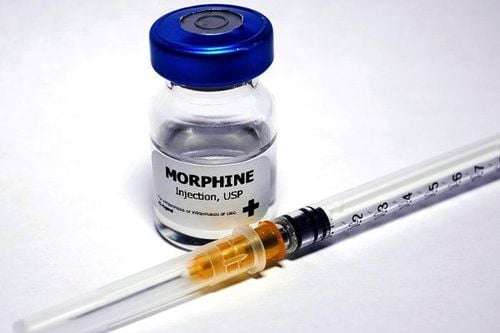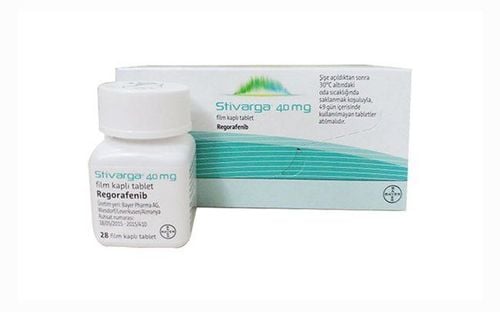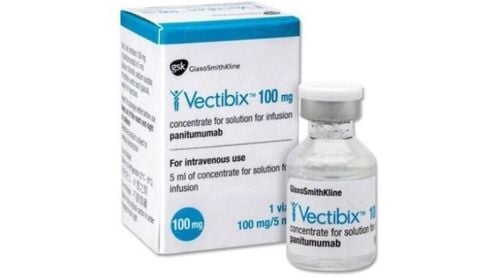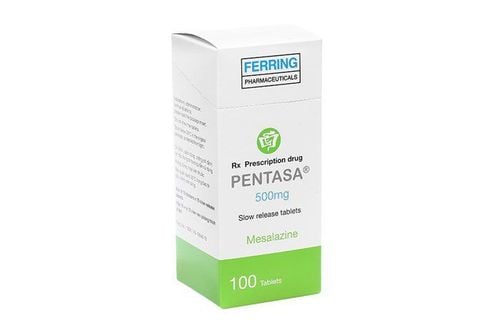This is an automatically translated article.
Posted by Master, Doctor Mai Vien Phuong - Department of Examination & Internal Medicine - Vinmec Central Park International General HospitalUlcerative colitis can cause inflammation and turn the cells lining the colon into cancer. According to a 2012 review, people with ulcerative colitis are twice as likely to develop cancer as those without the disease.
1. Overview of colon cancer data
According to a 2008 review of the scientific literature, a person's chance of developing colorectal cancer is:2% after living with ulcerative colitis for 10 years; 8% after 20 years; 18% after 30 years. The American Cancer Society (ACS) has also stated that any American's risk of colorectal cancer is less than 5%.
However, most recently, research by some scientists shows that the rate of colon cancer is decreasing in people with ulcerative colitis.
2. How does the duration of ulcerative colitis affect cancer?
According to the Crohn's & Colitis Foundation, the risk of colon cancer first increases when people have lived with ulcerative colitis for between eight and 10 years. The longer the duration of ulcerative colitis, the higher the risk of cancer.According to a study done in 2019, cancer rates among people in North America increased significantly after having lived with ulcerative colitis for 30 years. Meanwhile, Asians living with ulcerative colitis for 10-20 years will have a 4 times higher risk of cancer complications compared with those who only have the disease within 1-9 years. However, the increase in the incidence of colon cancer over time is not considered statistically significant, so further studies on this issue are needed.
3. Does the degree of ulcerative colitis increase the risk of cancer?
According to research, people with inflammation of the entire colon will have a very high risk of cancer. Conversely, the less inflammation there is, the lower the risk.In addition, in the case of patients with complications of primary sclerosing cholangitis (PSC) due to ulcerative colitis, it will affect the bile ducts and thereby increase the risk of colorectal cancer.

4. Colon Cancer Screening
Because your cancer risk increases over time if you have ulcerative colitis, it's important to have regular screenings. People with ulcerative colitis should talk to their doctor about a colonoscopy or other tests that can help detect cancer.Colon cancer, if detected early, will improve the effectiveness of treatment. According to statistics, people with ulcerative colitis, if regularly screened for cancer, reduce the rate of cancer development by up to 42%. Cancer rates decreased by 64%.
4.1 How is colonoscopy performed? During a colonoscopy, your doctor will use a long, flexible tube with a camera at the end to look inside your colon. This technique helps the doctor to detect polyps in the lining of the intestine, and remove the tumors (if any) to prevent them from turning into cancer. If necessary, tissue samples during colonoscopy will be biopsied to determine if they contain cancer cells.
4.2 Frequency of screening You should consult with your doctor about whether to have colonoscopy for regular cancer screening, if you have had ulcerative colitis for 8 years or more.
Usually, the doctor will advise patients with ulcerative colitis to have a colonoscopy every 1-3 years. Some cases may need to be tested more often or less often, depending on the specific object that the doctor will have appropriate indications.
5. How to reduce the risk of colon cancer
Some things that you can do to reduce your risk of developing colorectal cancer and improve detection of the condition include:Ask your doctor about taking medicines such as sulfasalazine (Azulfidine), vedolizumab (Entyvio) or mesalamine (Asacol HD, Pentasa)...to help control ulcerative colitis and reduce the risk of developing cancer. Take medication as prescribed by your doctor to keep your ulcerative colitis under control. See a gastroenterologist for a checkup at least once a year. Tell your doctor if any members of your family have colorectal cancer or have recently been diagnosed. Eat plenty of fruits, vegetables, and whole grains like brown rice or bread. Limit red meat, processed meats... as they are linked to the risk of colorectal cancer. Avoid alcohol or limit it to no more than 1 drink per day. Try to exercise regularly to improve fitness.

Change in the number of bowel movements; Blood in stool; Stools that are thinner than usual; Excess gas; Feeling of gas or fullness in the stomach; Diarrhea or constipation; Unplanned weight loss; More tired than usual; Vomiting. Currently, early cancer screening is considered a perfect measure in the timely detection and treatment of cancers. Reduce the cost of treatment and especially reduce the mortality rate in patients. Vinmec International General Hospital always deploys and introduces to customers the Early Cancer Screening Package at Vinmec - Peace of mind to live well to help with gene testing, imaging, testing of biomarkers to detect tumors you early.
Choosing the Early Cancer Screening Package at Vinmec - Peace of mind at Vinmec, customers will get:
Only one gene test can assess the risk of 16 common cancers in both men and women ( Lung cancer, colorectal cancer, breast cancer, pancreatic cancer, cervical cancer, stomach cancer, prostate cancer, ....) Early detection of early signs of cancer cancer through imaging, endoscopy, and ultrasound. The operation is simple, careful and accurate. A team of well-trained specialists, especially in oncology, are capable of handling cancer cases. With a system of advanced and modern medical equipment, along with a team of doctors with deep expertise and experience, the examination process at Vinmec becomes quick with accurate results, saving costs. costs and time for the patient.
Please dial HOTLINE for more information or register for an appointment HERE. Download MyVinmec app to make appointments faster and to manage your bookings easily.
ReferencesBye WA, et al. (2017). Strategies for detecting colon cancer in patients with inflammatory bowel disease. cochranelibrary.com/cdsr/doi/10.1002/14651858.CD000279.pub4/full Jess T, et al. (2012). Risk of colorectal cancer in patients with ulcerative colitis: A meta-analysis of population-based cohort studies. cghjournal.org/article/S1542-3565(12)00109-7/fulltext Lakatos PL, et al. (2008). Risk for colorectal cancer in ulcerative colitis: Changes, causes and management strategies. wjgnet.com/1007-9327/full/v14/i25/3937.htm Mayo Clinic Staff. (2018). Primary sclerosing cholangitis. mayoclinic.org/diseases-conditions/primary-sclerosing-cholangitis/symptoms-causes/syc-20355797














